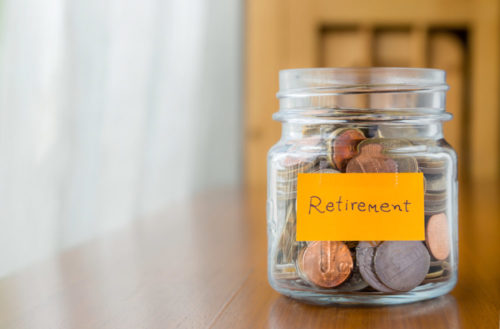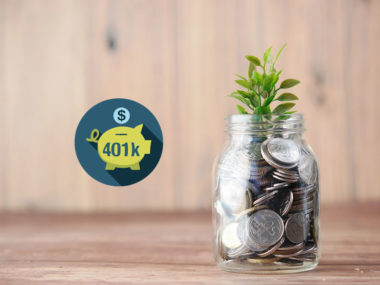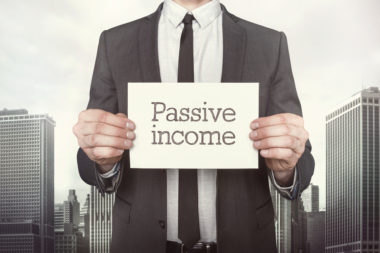Losing your job is hard enough, but for many of us unemployment means having to deal with a strict financial situation. Not everyone is eligible for unemployment benefits and sometimes what you have in savings is just not enough. No one is thrilled about the idea of having to remove money from their savings account or retirement fund, but when you’re in a tough spot sometimes you have no other choice. But how do you know when to do it? And what are the drawbacks of removing money from a retirement account?
Well, in a perfect world, you’d only rely on retirement savings when you absolutely have no other choice. The reason being, you worked hard for that savings and it truly isn’t meant for a situation outside of retirement. That money is supposed to grow through compound interest, not be subject to the ebbs of flows of investing and withdrawing. You’ll also need to understand that there are taxes and fees associated with early withdrawal. However, emergencies happen and sometimes you’re forced to make this decision. We’re going to provide you with the most detailed information possible so that you can make an informed decision that works best for you.
Why Does Saving Matter?
I’m not only talking about saving for retirement, but saving for emergencies like the situation you may find yourself in now. Saving and budgeting properly could potentially save you from being here in the future. Again, I’m not talking about your usual budgeting plan where you pay your bills and maybe save a little bit here or there. This is about saving for a serious emergency, large down payment, or just more money for retirement.
In another article, we discussed planning your unemployment to be no longer than six months. Ideally, it would be shorter than that, but six months is about the time when your unemployment benefits tend to run out, so we will say to plan for emergency savings to cover a maximum of six months. If that is the case, then in a perfect world, you’d have enough money in savings to get you through this time. Yes, I know that is a lot of money. However, it pays to know that you’re going to be taken care of. Not every individual is going to qualify for unemployment benefits and what happens if you don’t? How will you sustain yourself during this trying time?
Don’t stress yourself too much. Just do what you can, when you can. Right now, the most important thing is to get employment and budget your money in a way that can get you by until you are able to find a job. Yet, as soon as you’re less focused on the task at hand, I highly suggest that you make a savings plan. Put down ten, fifteen, twenty percent or more of your paychecks into a savings account. Even if you don’t ever find yourself in this nasty unemployed situation again, you’ll be glad you saved.
What Should I Do Before I Touch Retirement Savings?
Hypothetically, you’d be able to dip into a savings account and have some leftover income to sustain you while you search for a job. So, of course, that would be my number one suggestion: exhaust your main source of income. If you’re looking at your income and thinking, “how in the world will I make this last a few months?” then you probably need to take a deeper look into your finances and see if you can cut loose some non-essential charges. You might have to live without some luxuries for a while, but you’ll be able to pay for your necessities for longer.
You might consider supplementing your income with your credit card if your funds are really starting to run low. We discussed the proper way to do this in another article, but essentially you do not want to rely on your credit card. You should only use it in case of emergencies. If you’re thinking that you’re in such trouble that you’ll have to max out your credit card or withdraw from your retirement account, you’ll have to weigh out the pros and cons.
If you choose to withdraw from your retirement account, your retirement fund will be negative those funds until you work double time to get them back. If you choose to max out your credit card, you’ll be left with a significant amount of debt, fees, and interest that can take a long time to pay off, especially if you can only afford the minimum payments. Take a good, hard look at which of these situations seems more bearable to you and go with that one, but if you do remove from your retirement account, here’s what you need to know.
What Happens When I Withdraw From a Retirement Account?
Okay, let’s get down to business. If you’ve exhausted all other options and you have no other choice but to withdraw from your retirement account, here’s what kind of damages you’ll be looking at. First and most obviously, your retirement fund will shrink after you remove the funds. You’ll have to work harder if you plan on getting that money back in time for retirement. That means not only paying back the amount you withdrew, but the lost interest on that money.
The way compound interest works, any cut to the base amount in your retirement account means a proportionate cut to the growth of that investment over time. In other words, you aren’t just taking money from yourself now, you are taking potential income from your future self at the same time. So making up for this loss means, just like a loan, you need to plan on paying the principal, and interest.
Either that or you’ll just have to deal with the fact that you’ll be less those funds upon retirement. Let’s say that you fit into the former category though, now is a good time to start thinking about increasing your contributions to your retirement account when you can.
Start planning out your retirement goals and then once you achieve employment, you can set those goals in motion. If you can, take the full amount of contributions possible. This will maximize your employer’s contributions as well, basically giving you free money. In addition, you may be able to open a second account or make deposits directly into your account when you have some extra money. The choice is yours, but if you plan ahead, you can begin to lessen the sting of your early withdrawal.
You should thoroughly understand your state’s regulations regarding early withdrawal from tax-privileged retirement accounts. For example, federal law mandates that all early retirement fund withdrawals are charged a ten percent fee. In addition, many states choose to charge an additional ten percent that goes towards taxes. So, in total you can expect to lose about twenty percent of your total to fees and taxes if you’re under the age of 59 ½. Some states may have a higher fee up front and other states may have a lower one. Check around to make sure that you’re making the most informed decision possible.
In addition, you’ll have to report the fact that you withdrew funds from your retirement account on your annual tax report. This might have little to no affect on your taxes or it could have a larger one. The total amount disbursed from your account will be added to your total yearly income. If that lump sum does not match the amount of taxes that the government thinks you should have been charged, you might have to pay even more when tax season comes around. Again, it all depends on your unique income situation, but it’s something you should be aware of and prepare for.
After you’ve considered all of the above, you should be in the clear. However, just because you have a lump sum on its way to you in the mail doesn’t mean you should stray from your path. Stick to your unemployment budget and allocate your new income accordingly. Your goal with early retirement withdrawal is to sustain yourself during your job search. So, don’t let a large chunk of money trick you into thinking you have more money than you actually do. This money should be used sparingly when possible. If you don’t end up using all of it while you’re unemployed, try to add it back into your retirement fund. Every little bit helps!
Image Source: https://depositphotos.com/





